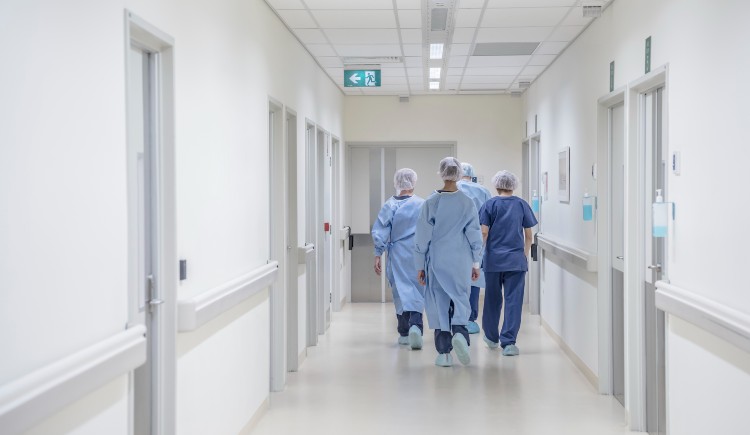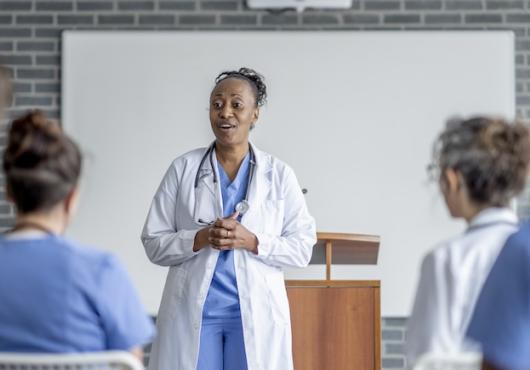
New Harvard Medical School Continuing Education channel on YouTube delivers authoritative, trustworthy health information to health care providers across the spectrum of practice.
Every day people watch over a billion hours of video on YouTube. More than 500 hours of content are uploaded to YouTube every minute. Now more than ever, people are seeking reliable health information on the internet. This includes health care providers, who now have a new resource to reference on the world’s largest video sharing platform.
Harvard Medical School, through its Office for External Education, has developed a new Continuing Education channel on YouTube. The goal of the channel is to provide clinicians with critical information, skills training, and an effective way to remain updated on best practices in clinical care. The videos are presented by Harvard Medical School faculty and are reviewed regularly to ensure that updates to the medical literature are incorporated.
Videos on the channel discuss topics that are of interest to health care providers across the spectrum of practice on a range of common clinical issues. The first group of videos will focus on key topics in cardiovascular medicine, oncology, ultrasound diagnostics, as well as broader issues in medicine such as health care disparities. The videos provide concise summaries of the topics covered, are grounded in the most current research, and include key takeaways and high-yield practice points. By the end of the first year of the project, 100 videos will be published to the channel.
“We’re delighted to work with YouTube to develop this new, advertisement-free resource that helps health care practitioners take better care of their patients,” said Sugantha Sundar, MD, faculty director, Continuing Education and Accreditation at HMS and anesthesiologist at Beth Israel Deaconess Medical Center, an HMS affiliated hospital.
This project evolved out of an initiative that YouTube announced in early 2021, with the creation of a new health partnerships team to address the evolving digital health needs of consumers and continue connecting people with authoritative health information.
“There is growing appreciation for the critical role that equal access to health information plays as one of the social determinants of health, and this goes for health care professionals as much as for patients,” explained Dr. Garth Graham, MD, and global head of YouTube Health. “Harvard Medical School is one of the giants of medical education, and this will be a tremendous opportunity to learn directly from some of the brightest minds in medicine, no matter where you are in the world.”
Jonathan R. Salik, MD, a cardiologist, and the incoming assistant inpatient medical director for cardiology at Massachusetts General Hospital, an HMS affiliated hospital, is the director of the Harvard Medical School Continuing Education YouTube channel. His academic focus is in leveraging technology to enhance medical education, and he sees this initiative as one with the capacity to advance numerous important goals including innovation in education, democratization of educational resources, and reduction of educational disparities.
“COVID-19 has amplified the call to expand medical education scholarship and has served as an important catalyst for innovation,” said Salik. “The effects of the pandemic have vitalized the field of virtual education.”
Drawing upon the vast expertise that exists at HMS and the clinical faculty at its hospital affiliates, the videos feature high-quality, evidence-based multimedia educational content.
Salik adds that virtual learning offers several benefits that have the potential to enhance medical education in the 21st century.
“There’s a lot of data demonstrating that multimedia-enhanced education, if done correctly, can reduce cognitive load and improve understanding,” said Salik. “The channel’s video format offers the opportunity to use graphics and imagery to bring medical concepts to life in a way that more traditional teaching formats cannot.”
Another key aspect of the initiative is that it is designed to help bring high-quality medical knowledge to new and larger audiences in the U.S. and around the world. By providing clinicians on the front lines with practical, high-yield advice from HMS experts, the HMS Continuing Education Channel is poised to become a catalyst for positive change by increasing accessibility to medical education resources, and thus ultimately to improving patient care.
“Our goal is to utilize the power of accessible, online learning to bring excellent medical education to broader audiences of clinicians worldwide. Through this project we hope Harvard Medical School can serve as a catalyst to help alleviate educational disparities across the globe,” added Salik.


